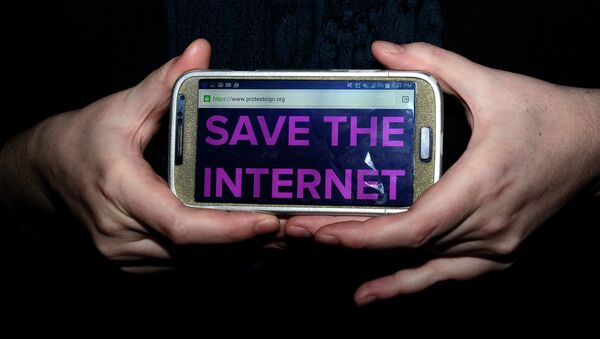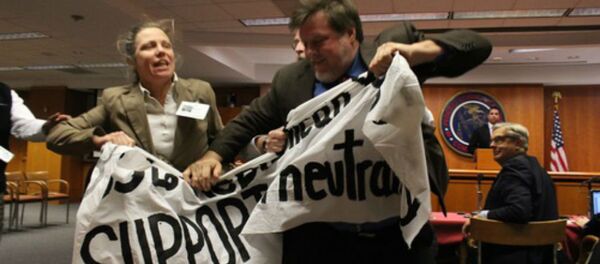The U.S. Court of Appeals for the D.C. Circuit on Friday heard arguments from broadband providers who are suing the Federal Communications Commission for imposing strict regulations including those involving net neutrality.
The court’s decision will have a major impact on how consumers access the Internet.
If the court rejects the FCC’s stance, Internet providers would have wider freedom in determining what they choose to show consumers online, as well as the cost for that access.
The three judges focused on the FCC’s application of net neutrality to mobile Internet providers.
Industry lawyers argued that the FCC violated the law when it applied its policies to mobile Internet providers, which they say are not part of the “public switched network” that Congress allows the FCC to regulate. In this notion, a tablet user would benefit from net neutrality when using WiFi but not when the device is connected to a 4G LTE signal.
“You’re saying where I am in my house determines whether I'm subject to blocking?" asked Judge Sri Srinivasan to Peter Keisler, an industry attorney.
Consumer advocates said they expect to be satisfied with the ruling on mobile broadband even though the situation in the courtroom led to “mixed results.”
Judges also analyzed the FCC’s ban on “paid prioritization,” which allows Internet providers to charge websites for faster loading times. Judge Stephen Williams said the ban risked eliminating "a lot of perfectly innocent" deals between Internet providers and Web site operators.
Nonetheless, analysts say a final decision is too close to call.
“Sometimes you walk out of an oral argument with a pretty good sense of which way the decision is going to go," said Randolph May, president of the Free State Foundation," in an interview with the Washington Post. “After witnessing the entire 3 hour argument, to my mind this was not one of those cases."



